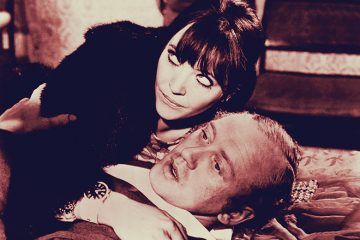Olga Voronino at the TLS:
 The discarded ending of Camera Obscura, transcribed and translated here for the first time, sheds light on Nabokov’s authorial strategies and narrative ethics. Instead of its single door, through which people are bursting, the final version features two doors, both wide open. Instead of its clatter and commotion, there is blissful silence. In the cast-off ending, we see not only the many hands grabbing Kretschmar but also the hero’s own bloodied hands palpating Magda’s bullet-ravaged face. In the text Nabokov chose to publish, all of that touching and fumbling gives way to the invisible presence of someone who guides the hero’s life – and death. The hand pointing out the objects in the room is that of the author’s own “assistant producer” (to borrow from a story of that name that Nabokov also saturates with film-script narration), a phantom manager of happy outcomes and tragic destinies for everyone who appears on the page.
The discarded ending of Camera Obscura, transcribed and translated here for the first time, sheds light on Nabokov’s authorial strategies and narrative ethics. Instead of its single door, through which people are bursting, the final version features two doors, both wide open. Instead of its clatter and commotion, there is blissful silence. In the cast-off ending, we see not only the many hands grabbing Kretschmar but also the hero’s own bloodied hands palpating Magda’s bullet-ravaged face. In the text Nabokov chose to publish, all of that touching and fumbling gives way to the invisible presence of someone who guides the hero’s life – and death. The hand pointing out the objects in the room is that of the author’s own “assistant producer” (to borrow from a story of that name that Nabokov also saturates with film-script narration), a phantom manager of happy outcomes and tragic destinies for everyone who appears on the page.
more here.
